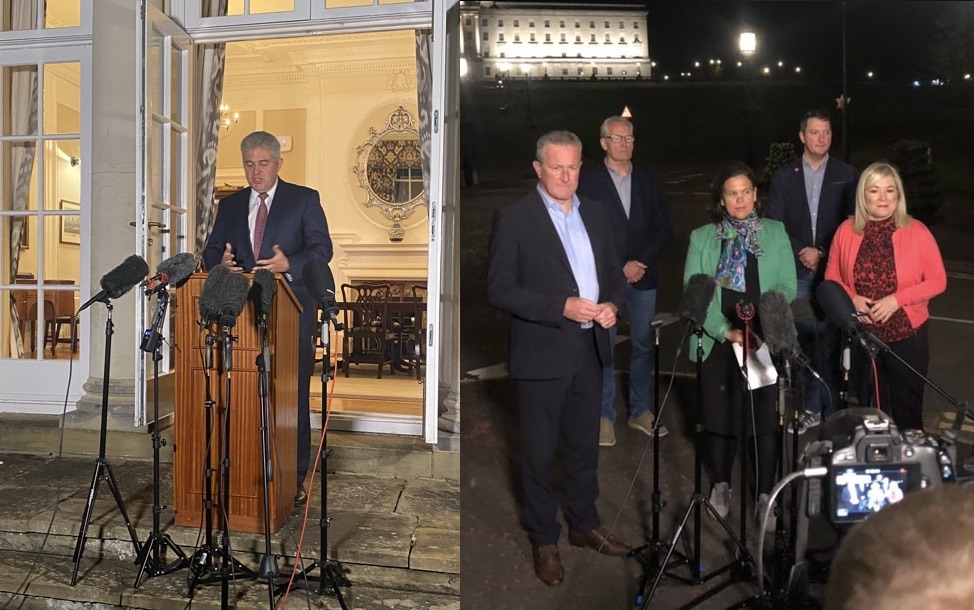
Sinn Féin leader Mary Lou McDonald has expressed delight early this Thursday morning after receiving a commitment from the British government to legislate for Irish language protections.
The British Direct Ruler Brandon Lewis has said he will introduce the necessary legislation at Westminster to implement the measures previously agreed under the ‘New Decade New Approach’ deal of January 2020, if Stormont fails to do so.
The NDNA deal was itself supposed to implement outstanding committments from the peace process dating back to the St Andrews Agreement of 2006, but had been vetoed at Stormont by the DUP.
The recent internal DUP purge against the leadership of Arlene Foster, led by Edwin Poots, had created a tricky standoff over the nominations, which tonight’s statements have resolved.
The move will allow Sinn Féin to make the politically difficult move of supporting unionist hardliner Paul Givan as the DUP’s nominee for First Minister, alongside Sinn Féin’s Deputy First Minister Michelle O’Neill.
The deal means the British government has agreed to legislate for both Irish and Ulster-Scots, as well as an office of identity and cultural expression. Lewis vowed this would be carried out by October, with language commissioners to be appointed by March 2022.
In a triumphant statement at 1am Stormont press conference, Mary Lou McDonald said it was an “oiche stairiúil” [“historic night”] and that “faoi dheireadh beidh Acht Gaeilge againn” [“we will finally have an Irish language act”].
She said the 15 year “saga” over implementing Irish language laws is over after getting a commitment by London “quite categorically” to take action.
“Tonight we have broken through the logjam of DUP obstructionism”, she said.
The outcome had been the “only viable option” to deliver the language rights as the DUP were “unwilling and incapable” of delivering on their commitments, she said.
“It is deeply regrettable that the DUP chose to block rights in this way for so long. Tonight we have broken through all of that.”
She said it was a “special moment” and “good news” for Irish language speakers and groups across the North, and for a society based on inclusion, respect and equality, but concluded: “We have to keep the heat on the two governments to make sure what we have agreed is delivered.”
![[Irish Republican News]](https://republican-news.org/graphics/title_gifs/rn.gif)
![[Irish Republican News]](https://republican-news.org/graphics/title_gifs/harp.gif)

